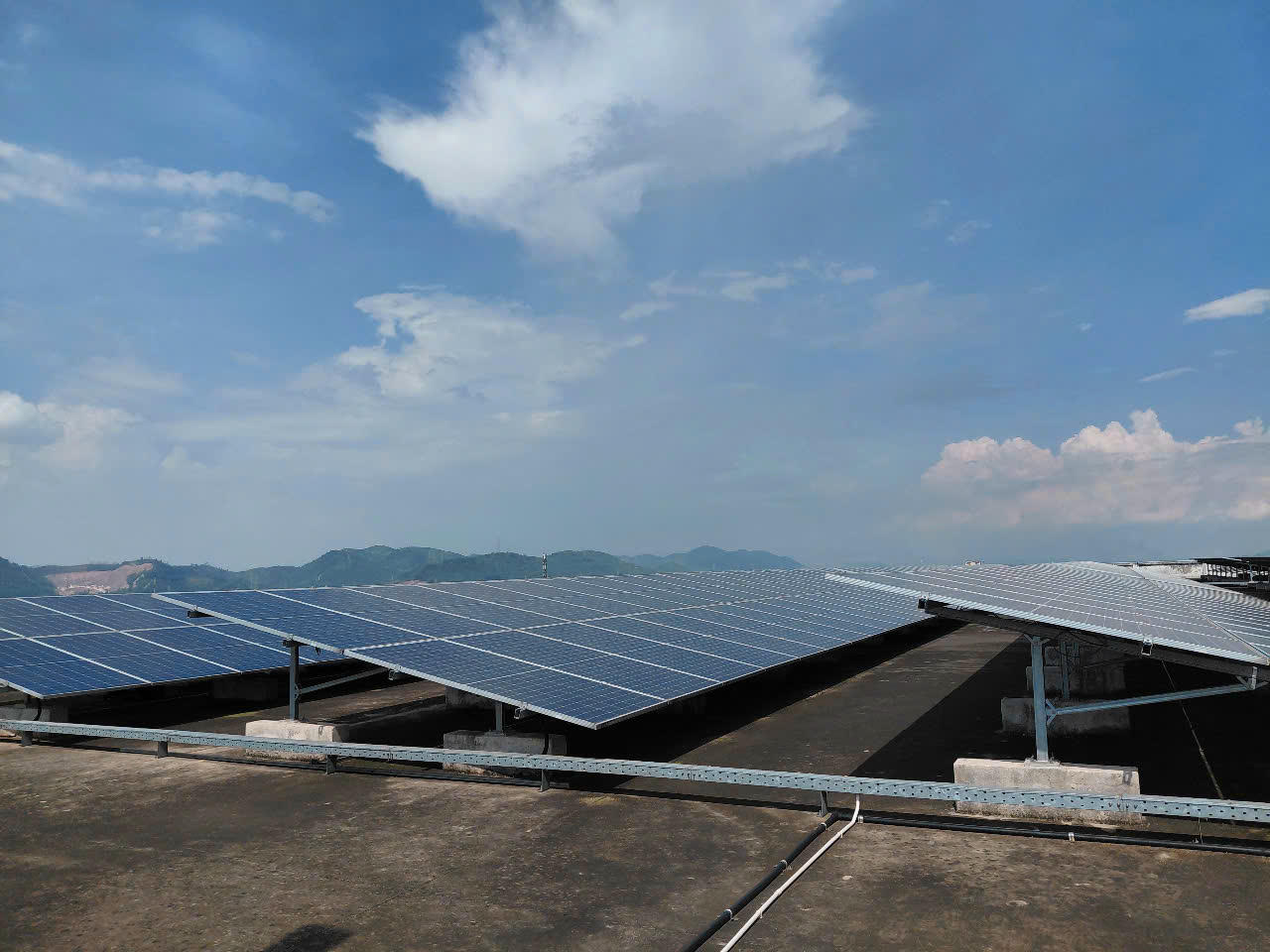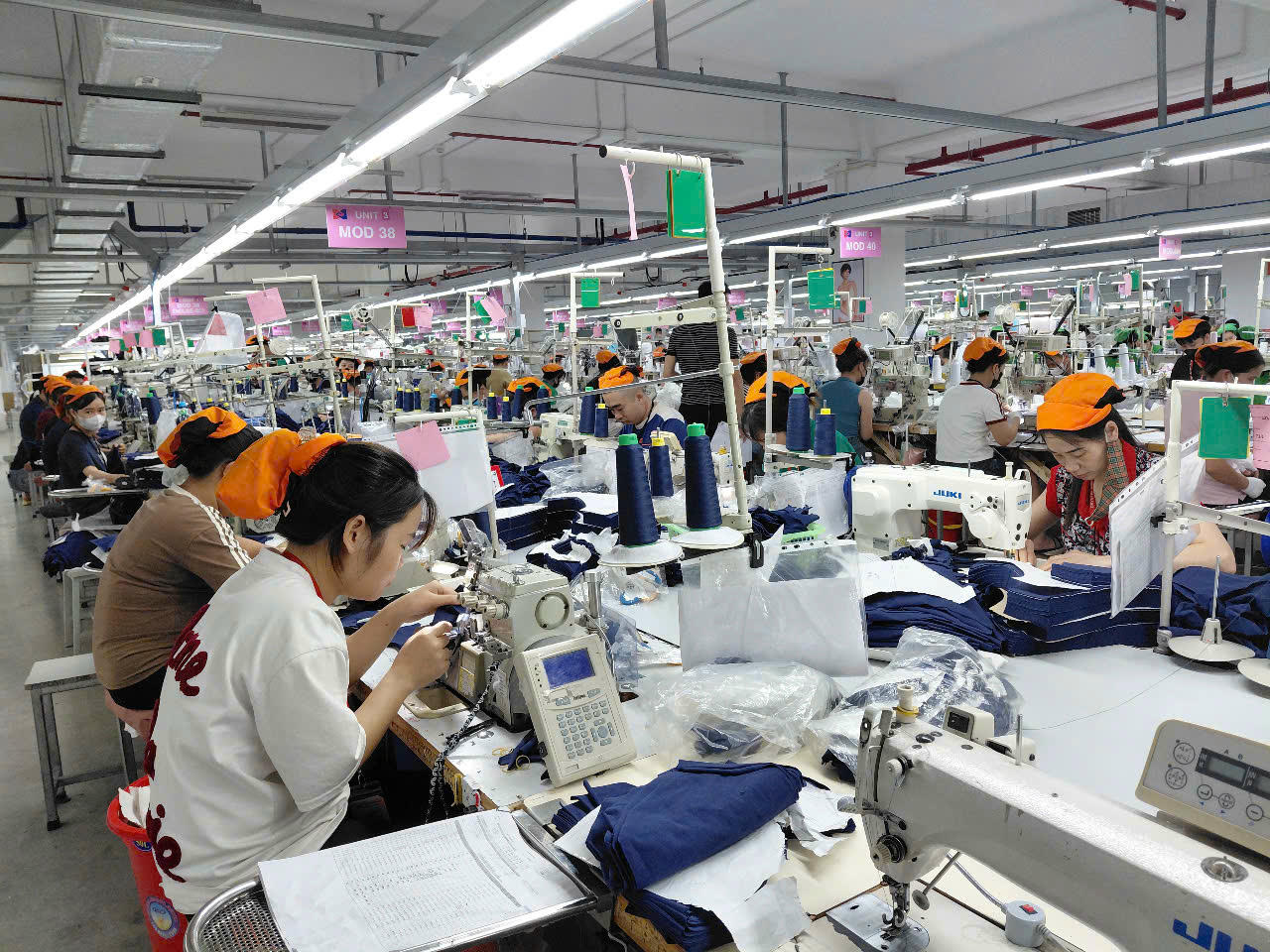Crystal Martin Vietnam’s Model of Maximizing Waste Heat Recovery
Crystal Martin Vietnam is a 100% foreign-invested enterprise, under Crystal International Group (Hong Kong), specializing in garment manufacturing for many international brands such as H&M. The factory currently operates 300 sewing lines, aiming to achieve Net Zero by 2050.
One of the company’s most notable steps is investing in a rooftop solar power system. Starting in 2019, Crystal Martin implemented three phases of solar projects, helping save about 3 million kWh/year. The company is continuing with two more phases, targeting savings of 6 million kWh/year—equivalent to 40% of the factory’s total electricity demand.
In addition to power from natural sources, Crystal Martin Vietnam has invested in optimizing its technical systems: BMS system to monitor and optimize the operation of the central air-conditioning system, lighting system, and electrical system. Reusing heat from air compressors to produce hot water for the canteen. Utilizing natural winter heat to reduce cooling costs in the factory.
At the overall scale, the company aims to reduce CO₂ emissions by 35% by 2030 and reach carbon neutrality by 2050. The central chiller system alone has reduced consumption from 3.5 million kWh/year to 3 million kWh/year—saving 500,000 kWh annually.
In 2023, Crystal Martin Vietnam received an award from H&M Group for outstanding progress in energy efficiency. This recognition was the result of many years of continuous effort in cost optimization while closely following the ESG requirements of the global supply chain.
Close Coordination with the Power Sector to Find Efficient Energy Solutions
Unlike Crystal Martin—with its well-planned technology investments—Diabell Vina is a typical example of how small- and medium-sized FDI enterprises can save energy through management and continuous improvement.
Diabell Vina Co., Ltd., a 100% Korean-owned company located in Van Trung Industrial Park (Bac Giang), specializes in producing cameras, phone cases, and assembling electronic components. Operating since late 2020, the company has expanded to 20 hectares with two large production lines, mainly serving the Korean and US markets.
From the very beginning, the company received close guidance from Bac Giang Power in using energy efficiently.
Every year, the power sector provides support in ensuring reasonable and efficient electricity use. The two sides frequently communicate to assess whether any new machines have been added during the year, whether they consume significant amounts of electricity, and to prepare accordingly to ensure the most efficient energy use.
Immediately after receiving guidance from power sector staff on energy efficiency, the company convened meetings with department heads to assign direct and specific tasks. Instruction boards were printed to guide optimal energy use—such as when to turn on air-conditioning, what temperature settings correspond to outside weather, when machines should be turned on or off, and ensuring lights are switched off when leaving a room. All lighting is now 100% LED. Machines have been modified for maximum energy efficiency, including installing motion sensors so they automatically stop when there is no activity.
A typical example of the company’s effectiveness: when first established, it used 20 plastic injection machines, each requiring five workers and consuming a large amount of electricity. Thanks to technological improvements, they now operate only five machines while maintaining the same output, significantly reducing both labor and electricity costs. Notably, although the number of machines has increased over time, the total electricity cost has barely risen.
Mr. Tran Van Xu, Head of Administration, emphasized: “We always carefully consider the energy efficiency of equipment before investing. Machines that are not energy efficient are simply not chosen.”
From Diabell Vina’s approach, it can be seen that energy savings do not only come from the scale of investment but also from corporate culture—when saving energy becomes a habit and a decision-making criterion.
The stories of Crystal Martin and Diabell Vina show that energy efficiency is no longer just a “recommendation” but an essential part of development strategy. Despite differences in scale, investment capacity, or production sectors, both companies share the same principle: treating energy efficiency as an indicator of maturity in management thinking. As Vietnam enters the green transition phase and commits to Net Zero, such models not only deserve encouragement but also replication—so that energy efficiency is no longer a privilege of large corporations but becomes the operational foundation of the entire manufacturing sector.
DUC DO









